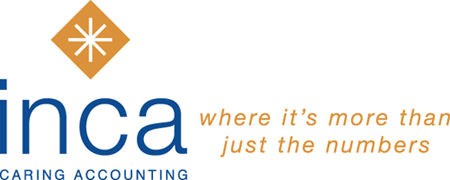Hurtling towards us faster than a gift-laden sleigh, Christmas will soon be here. It’s the time of year when business owners think about saying thank you to employees and customers for their part in helping to make the past year a success.
Are you starting to feel warm and generous?
At a personal level, Christmas is a time to show family and friends how much you care for them, and the giving and receiving of gifts is a seasonal tradition. In business too, gift-giving at Christmas is customary in many organisations, offering an opportunity to show key individuals how much their support and loyalty are appreciated.
While sharing the Christmas spirit with loved ones should be spontaneous and come from the heart, when giving gifts to staff or customers, you need to use your head too and be aware of the possible tax implications. Not only for you but also for the recipients of your benevolence.
If this sounds a little Grinch-like, it’s not meant to. There’s absolutely nothing to stop you being as munificent as you like at Christmas, but it makes sense to have a basic understanding of the rules that apply to gift-giving.

So, as you prepare to extend your goodwill to all men (and women), here are four things you should be aware of:
1. Most gifts are not tax-deductible
Gifts you give to staff or customers (at any time of the year) will be treated in the same way as business entertaining expenditure. This means that as a rule, you’re not allowed to offset the cost of gifts against your profits to reduce your tax liability. But there are some exceptions.
A gift may be tax-deductible if:
- It’s deemed by HMRC to be a ‘trivial benefit’. This usually means having a value of £50 or less. Note: A gift must not be given in return for work undertaken or in exchange for salary sacrifice.
- It bears a ‘conspicuous’ advertisement for your business but is not food, drink, tobacco – or vouchers that can be exchanged for goods.
This second exception to the rule opens the opportunity for businesses to give their customers branded promotional gifts such as calendars, umbrellas, clocks, mugs, mouse-mats and the like – all of which would qualify as tax-deductible.
2. Staff may have to pay tax on gifts you give them
It’s important to keep in mind that if you give anyone in your team a gift that has a value of more than £50, you must report this on their P111D. This means that the employee will be liable to pay benefit in kind tax – something that could well take the shine off receiving the gift in the first place!
3. Cash & vouchers are taxed as earnings
Cash and vouchers are a flexible way to reward employees at Christmas. Because they can easily be converted into something the recipient genuinely wants, they’re always welcomed. But if you’re considering giving employees a cash bonus or vouchers that are exchangeable for goods, services or cash this Christmas, you need to remember that both will be taxed as earnings and subject to tax and national insurance.
4. You can claim VAT on gifts purchased for employees & customers
If your business is registered for VAT, you can claim back the input VAT you pay on Christmas gifts you purchase for employees and customers. Be careful though – if the total value of the gifts you give to any individual over a 12-month period is in excess of £50 (excluding VAT) and you’ve claimed input VAT, you’ll have to charge output VAT on the total cost of the gifts. For this reason, if you anticipate giving gifts with a total value exceeding £50 over the course of any year, it’s probably simpler not to claim input VAT.
Let Inca Make Sure You Have a Happy & Tax-Efficient Christmas!
Gift-giving is a great way to reward the hard work of your staff and the loyalty of your customers. We can help you to maximise your generosity while minimising your tax liability – and making sure you don’t inadvertently land recipients with a gift they’re unlikely to appreciate in the form of a tax bill!
For help and advice on making sure your Christmas is a tax-efficient one, call us now on 01235 868888 or email us at [email protected].




